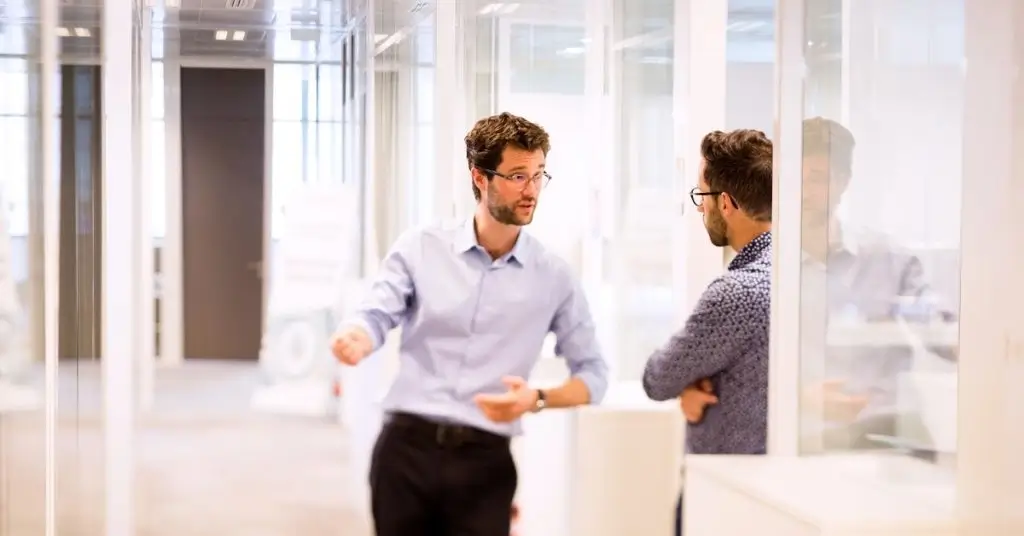Social Learning Theory was first proposed by psychologist Albert Bandura, to highlight the way that we, as human beings, keenly observe and imitate the behaviours and attitudes of other people. The social learning approach sees learning as being most effective in a social context, when people can learn through real-life examples and direct experiences. It’s based on the idea that people learn best through their environment, as part of a continual process of observational learning.
Although this approach is rooted in psychology, it has many applications for real-world education and training across a range of contexts.

What is Social Learning?
The social learning approach is based on Bandura’s Social Learning Theory, which overlaps significantly with behaviourist learning theories of classical conditioning. At the heart of this approach is the belief that the cognitive process of learning is something that happens in a social context, rather than in formal classrooms.
This behavioural theory suggests that the process of learning is, at its essence, a cognitive behaviour that occurs in social settings, where people observe others and model their behaviour. At an instinctive level, people are motivated to learn in order to improve their future social interactions.
You can find examples of social learning in almost every professional setting, whenever you have two or more people observing each other. Examples of social learning include games, forums, role plays, observing team members and supervisors, and mentoring.
Social Learning in Classrooms
Social learning can be a powerful tool in classrooms of all levels, from preschool to postgraduate studies. Teachers are finding that students of all ages learn much more, retain more information, and stay more engaged through social learning than through textbooks alone.
In school, teachers most commonly use social learning through guided participation methods. This could be the teacher saying a phrase or word and having the students repeat it back. Other common examples are choral reading, call-and-response teaching, and modelling.
Social learning plays an equally important role in college and post-graduate learning environments. Furthermore, it’s not limited to in-class sessions: social learning can also be effective in a remote context, such as through distance learning centres, virtual classrooms and online forums..
Advantages of Social Learning
Social learning is highly effective as it taps into our behavioural instincts, making it the most natural way to learn. Most people practice social learning every day, both consciously and unconsciously.
Social learning has a range of benefits in both academic and professional environments:
- It promotes a culture of sharing knowledge and experience
- It helps people stay connected even when working or studying remotely
- It increases engagement through active participation
- It improves knowledge retention
- It promotes better communication as people receive rapid feedback
- It builds closer relationships within teams through increased collaboration and team-building initiatives
- It encourages the exchange of ideas
How Social Learning is Used in Higher Education Programmes
The higher education context is ideal for social learning, as students in this environment are looking for hands-on opportunities to apply the knowledge they learn in a real-world setting.
In fact, EDHEC Online programmes are based on social learning, with plenty of opportunities for collaboration, networking, and experiential learning. EDHEC Online programmes that allow you to build strong relationships with your fellow students and learn with your cohort create a shared learning experience because everybody has something beneficial to bring to the table.
In recent years, many higher education institutions have moved away from conventional teaching to embrace new approaches, notably with an increased emphasis on teamwork. By studying in work groups, completing group projects, and pursuing other types of collaboration throughout their studies, students gain valuable skills and knowledge through observational learning.
The adoption of technology is also very supportive of social learning in higher education. Feedback loops are fundamental to the concept of social learning: we learn from the feedback we receive, and modify our behaviour accordingly. Social media, online forums, and other technology make the feedback loop faster and therefore help to amplify social learning.
Embrace Social Learning with an Online Course
Bandura’s theory on social learning is transforming the education sector by allowing us to better understand how students learn from their social environments and model the behaviours that they observe.
The social learning approach is all about improving learning outcomes through interaction. The educator plays a key role in this process: by establishing a certain type of environment, professors can encourage effective and beneficial social learning. Together, professors and higher education institutions can build a positive, nurturing learning environment that will encourage critical thinking, creativity and collaboration.



